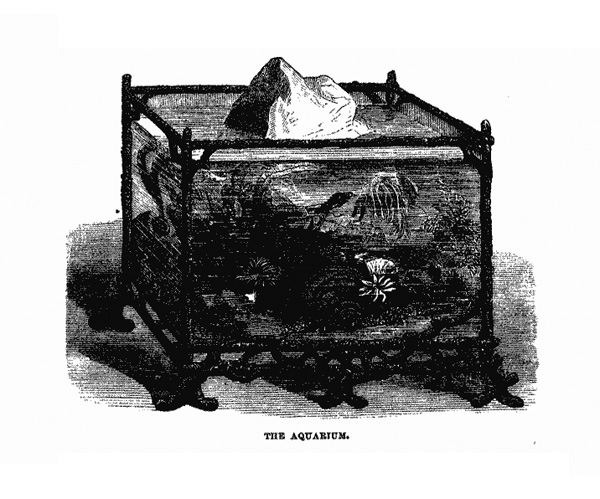
In my most recent post, I shared an exchange with a novelist friend about the work of the novelist Joseph O’Neill. When we left off, my friend wondered what I thought of the following sentence, which he’d found to be marred by overreaching and imprecision that undermined the entire enterprise–leading to visual confusion and a general ringing falsehood. The telltale phrase regarding the motley residents of New York’s Chelsea Hotel:
Over half the rooms were occupied by long-term residents who by their furtiveness and ornamental diversity reminded me of the population of the aquarium I’d kept as a child, a murky tank in which cheap fish hesitated in weeds and an artificial starfish made a firmament of the gravel.
Once my friend got to “artificial starfish” he was “completely confused.”
Firmament is sky, but how is the gravel at the bottom of the tank like a sky? Even if you have this artificial starfish lying on it, my response is that it does not make a firmament. And so the entire thing rings false.
So, I sent my friend the OED’s definition for firmament, all of it, which begins with the common meaning, “The arch or vault of heaven overhead,” but also includes a less familiar meaning, “In the literal etymological sense: Anything which strengthens or supports; a substratum, a firm support or foundation.” In retrospect, this response of mine was hasty (I was, in fact, in a rush when I replied), given that a measured scrutiny of the sentence reveals to me that O’Neill seems to be using, playfully, definition #1, as this little walk through the sentence might suggest.
The large comparison is hotel to fish tank. The qualifying idea of that the residents are like fish, furtive in their movements like fish, creatures and residents both darting this way and that. “Ornamental diversity” is also very visible, in the sense of it conjuring brightly colored and varied aspects of fish and by extension residents. Nice stuff so far. Then there’s the murky tank idea, which calls up the grime and gloom of an old hotel. Smooth sailing up until now, now being the moment when we reach the artificial starfish, which “made a firmament of the gravel.”
Certainly, it’s both an unusual image and a conspicuous turn of phrase, but to my mind right now not so inscrutable. The starfish is making a firmament of the gravel because it is star-shaped (and therefore star-like) and the gravel is then the dark background of the sky. So–a play on the idea of stars and starfish, the turning of the bottom unexpectedly into a kind of sky.
That said, I do admit that some mental processing is required to make sure one sees this. By choosing the word firmament, O’Neill is surely calling attention to the image, or, rather, calling attention to his making of an image out of an unusual comparison–out of language. This makes O’Neill’s use of language less like Isaac Babel’s, say, whose prose, while not minimalist (as far as I understand it based on secondhand reports of the Russian) was nearly journalistically transparent, and more like John Updike’s, of whom O’Neill is an admirer (and has a memorial essay about Updike over at Granta’s rich website).
I’ve received a bunch of email on this sentence, without any consensus. Another novelist wrote to say, “That’s one brutal sentence.” Whereas other responses have suggested that the sentence is vivid and clear. I’m probably on the fence on this one. I see it, but the sentence does make me ask: to what end such an image? Is it just a fancy way of saying something simple? Or is it an unusual way of saying something complicated: that the narrator, his great desperation charted by the book, is searching for something–anything–he can hold on to, his life so hopeless that he’s converting remembered fish-tank bottoms into skies where he can find stars to wish on?
I’m sure that’s going too far. I suspect that all this boils down to taste. And one can argue taste, of course: that, among its several jobs, is what literary criticism is for.


